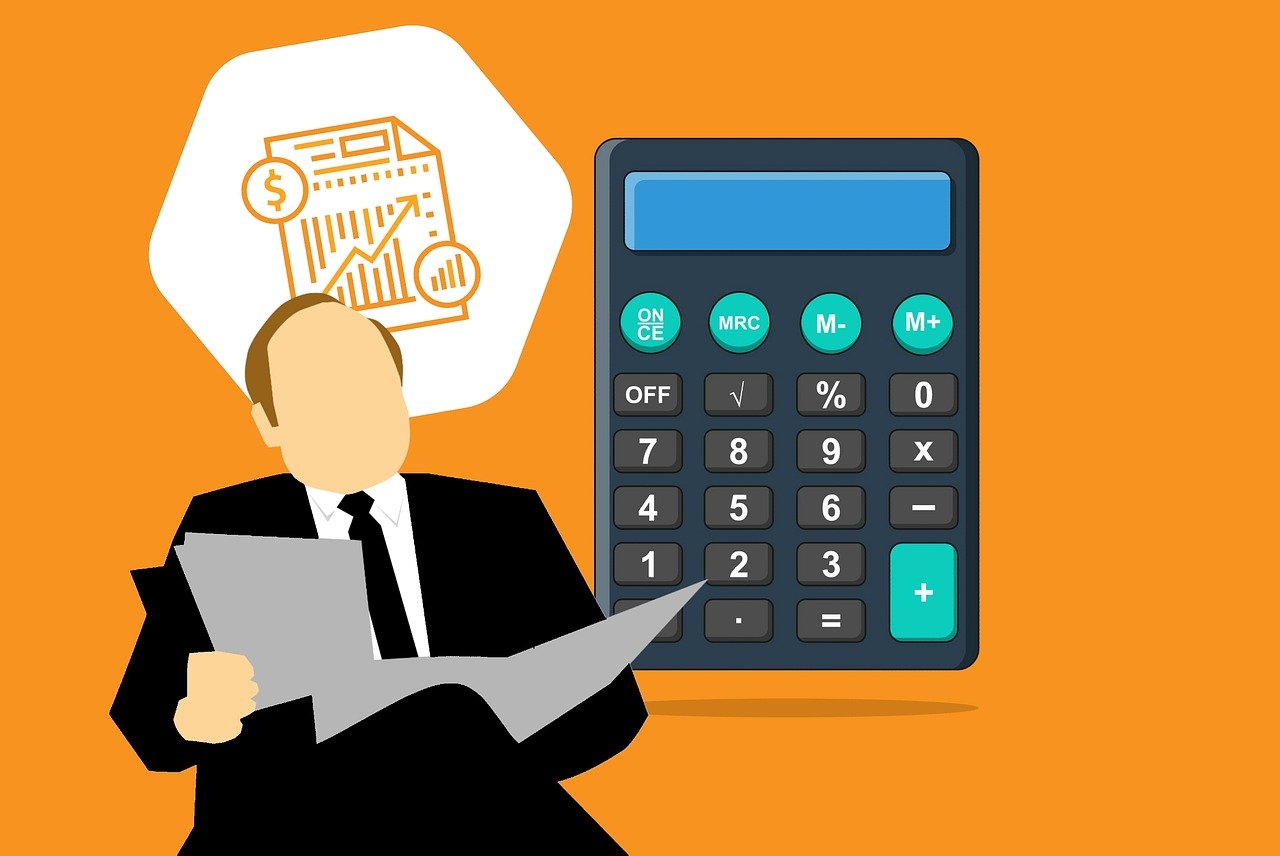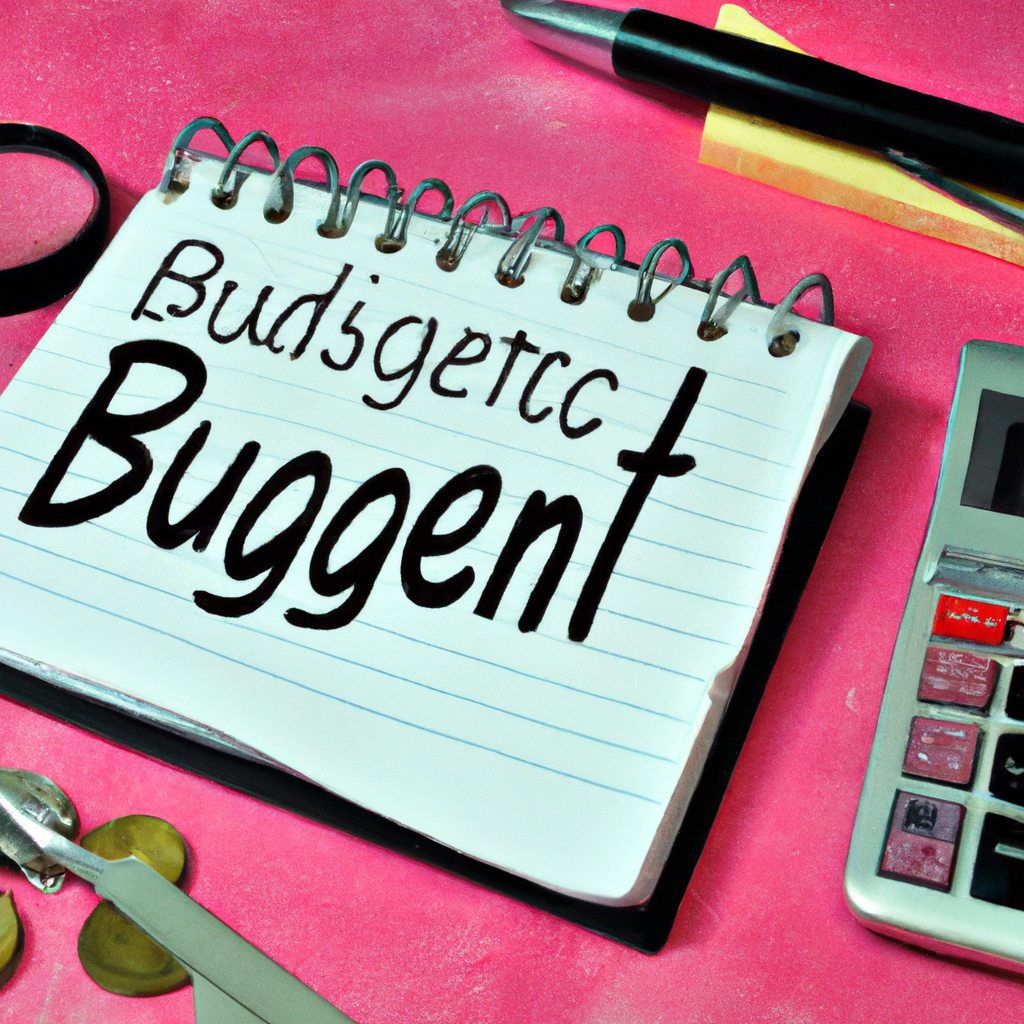In managing your finances, it’s natural to wonder if you need to meticulously account for every single expense in your budget. After all, it can be time-consuming and often feels unnecessary. However, overlooking or underestimating expenses can have a significant impact on your financial well-being. In this article, we’ll explore the importance of tracking even the smallest expenses, how it can help you gain control over your spending habits, and ultimately lead to a stronger financial future. So, let’s dive in and discover why accounting for every single expense in your budget is crucial.
Importance of Budgeting
Budgeting is a crucial aspect of managing your finances effectively. It allows you to have a clear understanding of your income and expenses, bringing financial awareness into your life. By creating a budget, you can actively track your spending habits, save for future goals, and make informed financial decisions. Let’s explore why budgeting is vital for your financial well-being.
Brings Financial Awareness
Budgeting helps you become more aware of your financial situation. It allows you to see where your money is coming from and where it is going. By keeping track of your expenses, you gain a better understanding of your spending habits and patterns. This awareness helps you identify areas where you can cut back or make adjustments to save more money. With a clear picture of your financial situation, you can make informed decisions about your spending and prioritize your financial goals.
Helps in Setting Financial Goals
When you have a budget in place, you can effectively set and achieve your financial goals. Whether you want to save for a dream vacation, pay off debt, or build an emergency fund, budgeting allows you to allocate your resources towards these goals. By setting specific targets and creating a plan to reach them, you are more likely to succeed. Budgeting helps you stay focused and motivated while ensuring that your financial goals remain a priority.
Enables Effective Financial Planning
By having a budget, you can plan your finances better. It allows you to allocate your income towards various expenses and savings categories. Effective financial planning involves understanding your cash flow, maintaining an emergency fund, and preparing for unexpected expenses. With a budget in place, you can anticipate upcoming expenses, such as bills or future financial commitments, and make the necessary adjustments. It empowers you to be proactive in managing your finances and be prepared for whatever comes your way.
Types of Expenses
Understanding the different types of expenses is essential for creating a comprehensive budget. Expenses can be classified into three main categories: fixed expenses, variable expenses, and periodic or occasional expenses. Let’s take a closer look at each of these categories.
Fixed Expenses
Fixed expenses are recurring costs that remain relatively stable from month to month. They are essential expenses that you need to pay regularly. Examples of fixed expenses include rent or mortgage payments, utilities (such as electricity, water, and internet), insurance premiums, and loan repayments. Fixed expenses are typically predictable and remain constant, making them easier to budget for.
Variable Expenses
Variable expenses, on the other hand, are costs that can fluctuate from month to month. These expenses are not fixed and can vary based on your choices and circumstances. Examples of variable expenses include groceries, dining out, entertainment, personal care, and shopping. Variable expenses can be more challenging to predict and control, but by tracking your spending, you can manage them effectively within your budget.
Periodic or Occasional Expenses
Periodic or occasional expenses are expenses that do not occur monthly but are still important to consider in your budget. These expenses may be irregular or occur at specific intervals. Examples of periodic expenses include annual subscriptions, membership fees, holidays and vacations, home or vehicle maintenance costs, medical expenses, and special events such as birthdays or weddings. Planning and saving for periodic expenses in advance can help you avoid financial strain when they arise.

Understanding Your Financial Situation
Before creating a budget, it is crucial to have a clear understanding of your financial situation. This involves tracking your income, identifying regular expenses, and analyzing your spending patterns. Let’s delve into each of these aspects.
Tracking Income
Begin by tracking your income sources. List down all the money you receive regularly, including your salary, bonus, freelance income, investments, and any other sources of income. Understanding how much money you have coming in each month forms the foundation of your budget.
Identifying Regular Expenses
Next, identify and categorize your regular expenses. These are the expenses that you incur every month and are reasonably consistent in nature. Start with fixed expenses, such as rent or mortgage payments, utility bills, insurance premiums, and debt payments. Then move on to variable expenses, like groceries, transportation, and entertainment. By listing and categorizing your regular expenses, you can get a comprehensive view of your spending habits.
Analyzing Spending Patterns
Once you have identified your regular expenses, it’s time to analyze your spending patterns. Take a closer look at where your money is going and how much you are spending in each category. This analysis will help you identify areas where you may be overspending or areas where you can potentially cut back. By understanding your spending patterns, you can make more informed decisions about how to allocate your funds and make adjustments to meet your financial goals.
Inclusion of Essential Expenses
When creating your budget, it is essential to include all your essential expenses. These expenses are necessary for your day-to-day living and should be given priority. Let’s explore some of the essential expenses that need to be considered in your budget.
Housing and Utilities
Housing is one of the most significant expenses for most individuals. This includes rent or mortgage payments, property taxes, homeowners’ association fees, and home insurance. Additionally, utilities such as electricity, water, internet, and gas bills should also be accounted for in your budget.
Food and Groceries
Food is another essential expense that needs to be budgeted for. This includes groceries for home-cooked meals, dining out, and any other food-related expenses. Consider your average monthly spending on food and include it in your budget to ensure you have enough allocated for this essential need.
Transportation
Transportation costs should also be factored into your budget. This includes expenses such as car payments, fuel costs, public transportation fares, parking fees, and vehicle maintenance. Whether you own a car or rely on public transportation, understanding and budgeting for transportation expenses is crucial.
Insurance
Insurance is an essential expense that provides financial protection in case of unexpected events. This includes health insurance, life insurance, car insurance, renters or homeowners insurance, and any other relevant insurance policies. Ensure you allocate funds in your budget to cover these insurance premiums.
Debt Payments
If you have any existing debt, such as credit card debt, student loans, or personal loans, it is vital to include the monthly payments in your budget. Make sure you allocate enough funds to cover the minimum payments and consider paying off debt faster if it aligns with your financial goals.
By including these essential expenses in your budget, you create a solid foundation for managing your finances effectively.

Consideration of Variable Expenses
While essential expenses form the core of your budget, it is equally important to consider and manage your variable expenses. These expenses can vary from month to month and may require more attention and discipline. Let’s explore some common variable expenses that you should consider in your budget.
Entertainment and Leisure
Everyone needs some form of entertainment and leisure activities in their lives, whether it’s going to the movies, attending concerts, or participating in hobbies. Allocating a portion of your budget to entertainment and leisure expenses allows you to enjoy life while still staying within your financial means.
Dining Out
Dining out is a common variable expense that can quickly add up if not controlled. While it’s enjoyable to eat at restaurants or order takeout, it’s essential to budget for these expenses and set limits to avoid overspending. Consider how many times per month you dine out and allocate a suitable amount for this variable expense.
Personal Care
Personal care includes expenses such as haircuts, salon services, grooming products, beauty products, and spa treatments. While these expenses may not be a necessity, they contribute to overall well-being and self-care. By budgeting for personal care expenses, you can prioritize this aspect of your life without overspending.
Shopping
Shopping expenses encompass clothing, accessories, household items, gadgets, and any other discretionary purchases. It’s essential to set a budget for shopping and avoid impulsive purchases that may strain your finances. By consciously allocating funds to shopping, you can enjoy the occasional splurge while maintaining financial discipline.
Gifts and Donations
Gifts for special occasions and charitable donations should also be considered in your budget. Allocate an amount each month for these expenses to ensure you can express your appreciation for loved ones and contribute to causes that are important to you.
Miscellaneous
Miscellaneous expenses refer to any other variable expenses that do not fall into a specific category. These can include things like hobbies and interests, subscriptions, small impromptu purchases, and any other discretionary spending. While it’s difficult to predict the exact nature of miscellaneous expenses, setting aside a small amount each month can help cover unexpected or spontaneous costs that may arise.
By including and managing your variable expenses effectively, you can balance enjoyment and financial responsibility within your budget.
Managing Periodic or Occasional Expenses
Periodic or occasional expenses are those that do not occur every month but are still crucial to consider in your budget. Planning and saving for these expenses in advance helps you avoid financial strain when they arise. Let’s explore some common periodic or occasional expenses that should be factored into your budget.
Holiday and Vacation Costs
Holidays and vacations are exciting, but they can also be costly. Budgeting for holiday and vacation expenses allows you to save in advance and avoid accumulating debt. Consider the average cost of your desired holidays or vacations and allocate funds to make these experiences possible without derailing your overall financial plan.
Home and Vehicle Maintenance
Maintaining your home and vehicle is essential for their longevity and functionality. However, maintenance costs can be unpredictable and may occur sporadically throughout the year. Budgeting for home and vehicle maintenance expenses ensures you have funds set aside for repairs, upgrades, and unexpected costs that may arise.
Medical Expenses
Medical expenses can arise unexpectedly and are often unpredictable. It is important to allocate funds in your budget for healthcare-related costs such as doctor visits, prescriptions, dental or vision care, and health insurance premiums. By planning for medical expenses, you can better manage your healthcare needs without causing financial strain.
Education and Professional Development
Investing in education and professional development is crucial for personal and career growth. Whether it’s taking courses, attending conferences, or pursuing advanced degrees, these expenses should be considered in your budget. By allocating funds for education and professional development, you can invest in yourself without compromising your overall financial stability.
Special Events
Special events such as birthdays, anniversaries, weddings, or parties may involve additional expenses. By allocating funds for special events in your budget, you can celebrate these occasions without worrying about the financial burden. Planning ahead and saving for these events allows you to enjoy them fully while staying within your financial means.
By including and managing periodic or occasional expenses in your budget, you can have a more comprehensive financial plan that covers all aspects of your life.

The Importance of an Emergency Fund
An emergency fund is an essential part of your budget. It acts as a safety net for unexpected expenses or financial crises. Let’s explore why an emergency fund is important and how it can benefit you.
Unexpected Expenses
Life is full of unexpected events that can cause financial stress. Whether it’s a sudden medical emergency, a car accident, or unexpected home repairs, having an emergency fund allows you to handle these situations without going into debt. By allocating a portion of your income towards your emergency fund, you can build a financial cushion and be prepared for the unexpected.
Safeguarding Against Financial Crises
Financial crises can occur at any time, such as a job loss, a natural disaster, or a significant economic downturn. Having an emergency fund provides you with a sense of security and peace of mind during these challenging times. It allows you to cover essential expenses, such as housing, utilities, and food, until you can get back on your feet. Building and maintaining an emergency fund is a proactive step towards safeguarding your financial well-being.
Make it a priority to allocate a portion of your income towards your emergency fund regularly. Start small and gradually build it up over time. Aim to have at least three to six months’ worth of living expenses saved in your emergency fund to provide sufficient coverage during unforeseen circumstances.
Impact of Small Expenses
While it’s important to budget for major expenses, small expenses can also have a significant impact on your overall financial health. Let’s explore some common small expenses that can add up and affect your budget.
Daily Coffee or Snacks
Small expenses such as daily coffee runs or snacks can quickly add up without you even realizing it. While these expenses may seem insignificant on their own, they can have a significant impact on your monthly budget. Consider making coffee at home or bringing snacks from home to save money and reduce unnecessary spending.
Subscription Services
Subscription services, such as streaming services, gym memberships, or software subscriptions, can also become a drain on your finances if not managed properly. While these services may provide value and enjoyment, it’s essential to evaluate their necessity and prioritize them within your budget. Consider canceling or reducing subscriptions that you no longer use or find unnecessary.
Impulse Purchases
Impulse purchases are unplanned and often unnecessary expenses that can sabotage your budget. Before making any purchase, take a moment to evaluate if it aligns with your financial goals and needs. Create a cooling-off period for larger purchases, giving yourself time to consider whether it is a wise financial decision.
By being mindful of small expenses and making conscious choices, you can minimize their impact on your budget and maintain better financial control.

Tools for Budgeting
Numerous tools and resources are available to assist you in creating and managing your budget effectively. Let’s explore some popular tools that can simplify the budgeting process for you.
Spreadsheet Software
Spreadsheet software such as Microsoft Excel or Google Sheets provides a flexible and customizable platform for budgeting. By creating a budget spreadsheet, you can categorize your income and expenses, track your spending, and calculate your savings. Spreadsheets allow you to visualize your finances and easily make adjustments as needed.
Budgeting Apps
Budgeting apps offer a convenient way to track your expenses and manage your budget on the go. These apps often come with features such as expense categorization, spending alerts, and budgeting recommendations. Popular budgeting apps include Mint, You Need a Budget (YNAB), PocketGuard, and Personal Capital.
Financial Management Tools
Financial management tools can provide a comprehensive solution for budgeting, tracking expenses, and managing your overall financial health. These tools often integrate with your bank accounts, allowing you to synchronize your transactions and gain a real-time view of your financial situation. Examples of financial management tools include Quicken, Moneydance, and Personal Capital.
Choose a tool or combination of tools that best suit your needs and preferences. Experiment with different options to find the one that makes budgeting intuitive and manageable for you.
Reviewing and Adjusting Your Budget
Creating a budget is not a one-time task. It requires regular review and adjustments to reflect changes in your financial situation and goals. Let’s explore how to review and adjust your budget effectively.
Regular Review
Set a schedule to review your budget regularly. This can be weekly, bi-weekly, or monthly, depending on your preference. During the review, compare your actual spending with your budgeted amounts and identify any discrepancies. Look for areas where you may be overspending or areas where you have extra funds that can be reallocated towards your financial goals.
Re-evaluating Financial Goals
In addition to reviewing your spending, periodically re-evaluate your financial goals. As your circumstances change, your goals may evolve as well. Take the time to reassess your priorities and make adjustments to your budget accordingly. Consider whether you need to save more aggressively, pay off debt faster, or allocate funds towards new financial aspirations.
Making Necessary Adjustments
Based on your review and re-evaluation, make the necessary adjustments to your budget. This may involve increasing or decreasing your budgeted amounts for specific expenses, realigning your savings goals, or reprioritizing your spending. Be flexible and adaptable in your budgeting approach to ensure it remains effective and aligned with your current financial needs.
Budgeting is an ongoing process that requires commitment and discipline. By regularly reviewing and adjusting your budget, you can ensure that it remains relevant and supports your financial goals.
In conclusion, budgeting is essential for maintaining financial awareness, setting and achieving financial goals, and enabling effective financial planning. By understanding the different types of expenses, analyzing your financial situation, and considering all essential, variable, and periodic expenses, you can create a comprehensive budget that covers all aspects of your life. Remember to include an emergency fund and be mindful of small expenses. Utilize the tools available to simplify the budgeting process, review and adjust your budget regularly, and make necessary changes to align with your financial goals. With a well-planned and managed budget, you can take control of your finances and achieve long-term financial stability.






